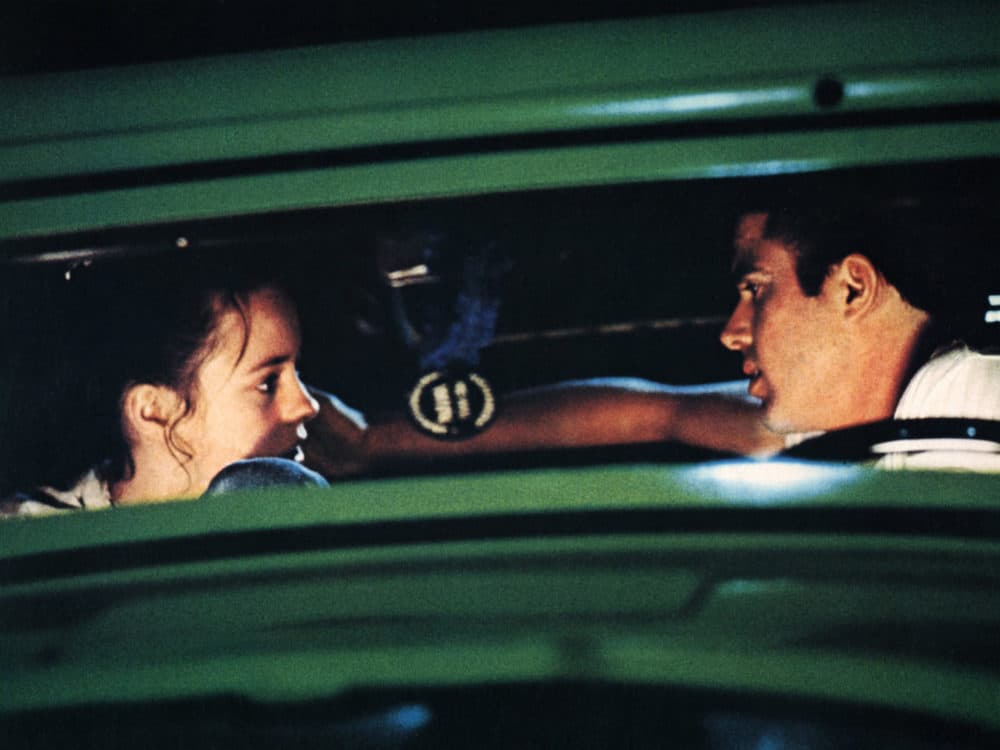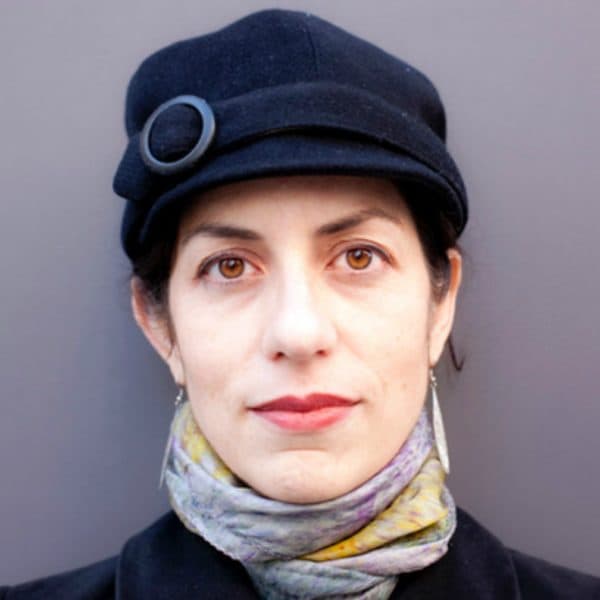Advertisement
Commentary
In This Summer Of Loss, I Watch Movies With My Daughter

The summer of 2005 was my summer of movies. Hugely pregnant with my first child, and living in a Brooklyn apartment with limited air conditioning, the Court Street movie complex was my only reliable refuge. I saw everything that summer — from "Batman Begins" to "War of the Worlds" to "Wedding Crashers." No movie was too serious or too silly. Settled in with my icy diet soda and bag of buttered popcorn, I had only my unborn child as company, and she was enough.
I even went into labor sitting in that movie theater. My husband and I were watching a thriller directed by Wes Craven called "Red Eye." The sounds provoked by my first labor pains were easily camouflaged by the audience loudly rooting for the heroine, played by Rachel McAdams, as she tried to thwart the efforts of a would-be terrorist, played by Cillian Murphy. I still remember the strange looks people gave me in the hall outside the screening room as I pressed my back against the wall, trying to breathe through my contractions as my husband repeatedly punched the buttons of the elevator that would take us to the street.
The girl born that night turns 15 at the end of this month and she’s an avowed cinephile. She’s a member of Letterboxd, a social network for film lovers, and has made a list of 260 movies she wants to see. So, the summer of 2020 has also been our summer of movies. But with a pandemic still raging across the country, we watch those movies at home instead of in a theater, my preferred ritual.
I even went into labor sitting in that movie theater.
I tried to explain to Annabel how hard it sometimes was to see movies when I was a teenager. She didn’t believe me when I told her people once had to wait in line (sometimes hours) to watch summer blockbusters like"The Empire Strikes Back" and "Raiders of the Lost Ark" and "Ghostbusters."
“We had no streaming,” I said. “No DVDs.”
“You couldn’t watch it on cable?” She asked.
“This was before everyone had cable,” I answered. If the movie was popular you had sold-out shows. You had to wait, and the waiting made it worth it.
We no longer have to wait. Even first-run movies and prestige TV shows are now streaming. But we are waiting for most everything else. All of us are mourning, in our different ways, the summers as we used to know them — not just the experience of going to the movies on a hot summer night, sitting in the dark with a theaterful of strangers.
The summer of 2020 will be remembered as the summer when everything was canceled -- outdoor festivals and concerts, summer camp and swimming pools. I even feel nostalgic when I go to Staples and see all those brand-new back-packs hanging from hooks, under "Back to School" banners, waiting for children who may no longer need them.
Advertisement
After foregoing middle school graduation, my daughter will attend her first year of high school remotely. She assures me that she is fine with this. “Other people have much bigger problems,” she reminds me. We have food and house security. We haven’t lost anyone to COVID-19. She’s right. I know this.
And yet, I grieve. What are the seasons without the rituals that give them shape and meaning? How do we mark progress in our lives without observing milestones — graduations, but also birthdays and retirement and, more tragically, funerals? How do we metabolize so much loss?
I’ve been managing my nostalgia by watching movies about nostalgia with my daughter. Misery loves company.
Before George Lucas gazed into the future with Star Wars, he recalled his past in "American Graffiti." He looks at the innocent early 60s — cruising! mooning! drag-racing! — from the jaundiced eye of post-Vietnam, post-Watergate 1970s. The movie launched the careers of its stars (Richard Dreyfus, Harrison Ford) along with backward-looking hits like"Happy Days" and "Grease."
In his 1994 film "Crooklyn," Spike Lee revisits his youth in 1970s brownstone Brooklyn, where the neighborhood kids spent their summer days playing Double Dutch and Rock ’Em Sock ’Em Robots, and singing along to the Delfonics. Annabel said she loved watching this more than Lee's better-known 1989 film, "Do the Right Thing," because it focuses on the lives of kids. And to be honest, in a summer where we must shout and carry signs to remind people that Black lives matter, a summer when the flood of videos of Black lives being assaulted and degraded continues, it’s powerful to see a movie that centers Black joy.
What are the seasons without the rituals that give them shape and meaning?
Then there’s Federico Fellini’s "Amarcord," a take on the Romagnolo phrase a m'arcôrd, literally, “I remember,” which shows a year in a life of a small seaside town in 1930s Fascist Italy. Annabel said the movie felt “comforting" to watch, focused as it is, not on a tense plot but on a series of small stories featuring an eccentric cast of characters — the town beauty, the blind accordionist, the lascivious schoolboys, the hot-headed father, a magical peacock — all defining Fellini-esque, and all lovingly remembered.
Yes, I wish my daughter could have had her sleepaway camp, a faraway place where she could have grown outside the watchful eyes of her parents. I also believe she deserves to explore being 15 among other teens in the hallways of a high school, not from behind a screen in our home. But quarantining together, as we’ve had to these past several months, I can’t help but feel grateful. Sure, we can irritate each other but we’re also able to share movies, just like we did in that summer of 2005.
Who knows? Maybe 15 years from now, when Annabel turns 30, she’ll look back on the summer of 2020 with her own longing. How lucky we were to have each other and these celluloid stories.
